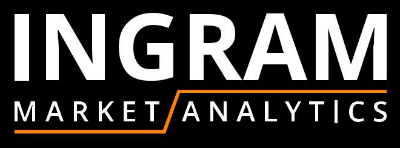In 2020, Ingram Market Analytics worked with POORLAW of Greater Hazelwood – Building Bridges for a Better Hazelwood, People of Origin Rightfully Loved and Wanted, a community non-profit in Hazelton, PA.
POORLAW is dedicated to making Hazelwood, PA, a safe, enjoyable place to live and raise children, and about standing up for what’s right no matter what the cost.
In 2020, POORLAW identified two major goals:
- Bring a grocery store back to their town.
- Coordinate volunteers and expand critical programs for young people.
POORLAW’s leadership knew that they needed to invest in new technology to gather input from residents and create usable data reports. But they had a limited budget and little understanding of the type of software program they should purchase.
Teaming up talent and expertise
They appealed to the Forbes Fund, and I agreed to guide them in their project. I met with POORLAW’s CEO, Saundra Cole-McKamey, Pastor Lutual Love, Senior Consultant, James Cole, Outreach Coordinator/President and four others.
We met every Thursday and Friday for more than six months. From the beginning, it was a strengths-based and people-centered process. Their intent was admirable, but they didn’t know what they didn’t know.
It was clear to me that they were getting bogged down in trying to choose a program, and overwhelmed by the technology and infrastructure. They were trying to accomplish every possible future project at once.
I had to rein in their enthusiasm and start at the beginning. Together we defined their basic goals: the information they wanted to gather and the results they wanted to obtain.
Working with the Forbes Fund, I can be a bridge for nonprofits who need financial support and data expertise. It’s an opportunity for me to build my experience and credibility while helping others.
Moving into online data
Earning the group’s trust was a delicate process. At first, they thought I didn’t believe in what they were doing, but soon they saw I could help them define and articulate their requirements.
At the most basic level, these requirements were:
- To collect data from the community, analyze it, and understand it.
- To accomplish tasks online, such as approvals and permission forms.
- To collect information online, then organize and share it.
- To manage this at a price we could afford.
Too often, when organizations start looking at costs, they feel as if they need to compromise to stay under budget. This can lead to silos of isolated areas that don’t talk to each other.
Determining the interaction structure up front let them define the software needed for different the projects and different audiences to interact. I wanted to carefully align their needs with the technology at a level they could manage, and not be a burden.
Building a data hub
The answer was the Equity Data Hub (EDH), front-end and back-end systems that would collect information online that could be shared with others. These tracking, collecting, and reporting support structures were powerful tools that could strengthen the organizational operations of POORLAW.
The EDH allowed them to:
- Link youngsters with mentors who could teach them a trade that would lead to jobs.
- Provide wrap around services, like help with homework, and food and toiletries.
- Recruit volunteers, coordinate placements, and confirm clearances.
- Save data on participants and tie it back to education, employment, and societal status over the years.
- Show the value of volunteers and share data with other community groups.
Reversing the food desert
POORLAW and GH-CARED are working together to establish a full-service community, employee-owned grocery cooperative at the Sara Dixon Innovation Center (SDIC), on the 4800 block of Second Avenue, the neighborhood’s central commercial district. The building’s first floor would be a 20,000-square-foot grocery store.
The first step was to establish the need, which meant surveying residents. The team created a survey tool that was available from the POORLAW website and promoted participation at local events with prizes as incentives.
It included questions such as:
- Where do you shop for groceries?
- How far do you travel to buy groceries?
- Do you own a vehicle or do you use public transportation?
We taught volunteers how to collect the data with training videos on YouTube. I had to reinforce the importance of quality data, explaining how to collect the data, and input it into the system. Good data is the arbiter of truth.
Feedback that reveals a need
The EDH survey went live in December 2021. Thirty days later, the survey had reached 250 community members. The goal was to survey 500 participants was within six months, and 50% of the town’s residents in the first year.
The early results showed a clear need for a grocery store, with 47.3% of respondents traveling between 6 and 15 miles to buy groceries. Plus, 45% did not own a vehicle and used public transportation.
I provided the initial analysis to the grocery store feasibility study team, Oak Moss Consulting, to make a strong case for a community-based grocery store.
Going forward, POORLAW and the EDH will collect, track and analyze data to inform the design, programming and resources for other projects to improve Hazelwood.
